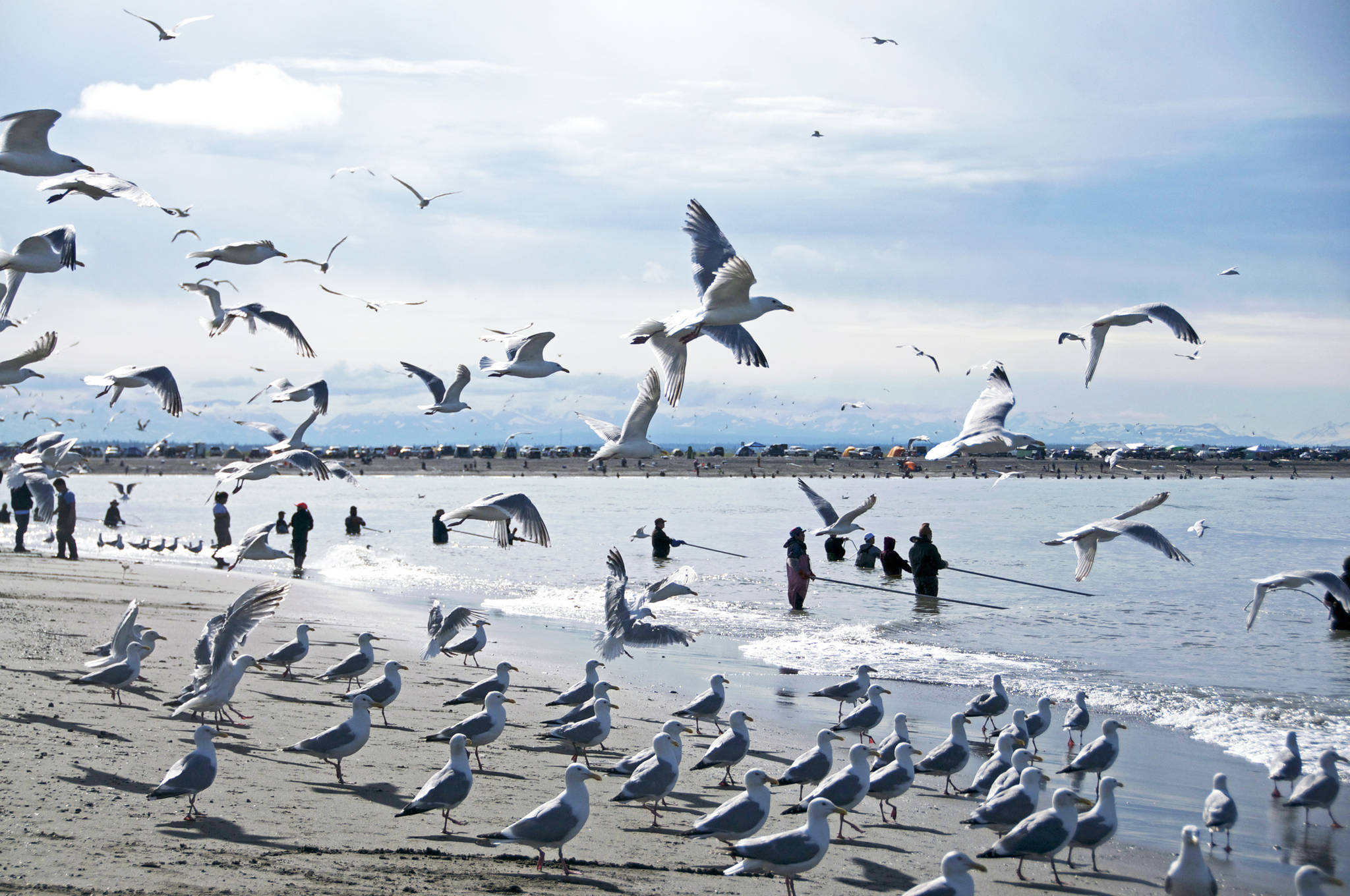Kenai’s city government has made managing the summer dipnet fishery pay for itself. Soon, fishery revenues may pay for other things, too.
“What we expect in the future is that the personal-use fishery fund is going to start giving back to other functions outside the fishery, and I think that’s appropriate,” Kenai Finance Director Terry Eubank said while presenting Kenai’s proposed fiscal 2019 budget at a public meeting on Saturday. “It’s almost crazy to think the impact it has on our community and citizens should come at no value to the residents.”
In 2013, Kenai administrators created a dedicated fund for managing the roughly 20,000 personal-use dipnetters who come to town from July 10-31. The fund is intended to make the fishery’s management self-sustaining and separate from Kenai’s taxpayer-funded general fund. Revenue from dipnet fees, grants and other sources — $513,972 in 2017 — is deposited into the fund to pay for the dipnet fishery’s city policing, clean-up, management, equipment and maintenance. Kenai spent $447,877 on these expenses in 2017.
The fund keeps a balance — $274,651 at the end of fiscal 2017 — to avoid taking losses if the Alaska Department of Fish and Game closes the fishery early, ending the city’s opportunity to recover its expenditures. Such a closure in 2006 cost Kenai $100,000 in unrecovered expenses.
The fiscal 2019 proposed budget is the first to take money — $50,000 — from the dipnet fund for general city use. Eubank expects the withdrawal to become an annual occurrence. After the withdrawal, the fishery fund would end the year June 30, 2019, with a projected balance of $217,353, Eubank said.
Kenai Council Member Mike Boyle said he was “not for it, but certainly not opposed.” Kenai residents unhappy with paying the $35 dock fee, $20 parking fee and $10 drop-off fee charged during the fishery have accused the city government of managing it for profit, he said.
“Up to this point, I’ve always been able to say no, that’s not true,” Boyle said. “Can’t say that anymore if you start doing this.”
Mayor Brian Gabriel said most of the fees are paid by out-of-towners. According to zipcode information Kenai has collected during recent fisheries, about half the dipnetters usually come from Anchorage. In 2017, about 18 percent of dipnetters were from the Kenai Peninsula, with 7 percent from Kenai and 6 percent from Soldotna.
“It’s almost like a return on investment — you charge them and, yeah, you’re costing some of your city residents some money, but you’re getting a whole lot of returns from everybody else’s investment,” Gabriel said. “The context I put it into is, when you go to downtown Anchorage … all you’re paying for is a place to park. When you come down here and utilize this fishery and you’re paying for parking or launching or whatever, and you’re getting something for that, you’re getting to go out and recreate.”
Though the $50,000 transfer to the general fund transfer would not be designated for any specific purpose, Kenai Council Member Tim Navarre suggested dedicating it in the future to specific projects.
City Manager Paul Ostrander said he plans to present the full budget, including the dipnet withdrawal, for the city council’s consideration at its next meeting on June 6. Fiscal year 2019 starts July 1.
Reach Ben Boettger at bboettger@peninsulaclarion.com

